The banning of Wikipedia critic Gregory Kohs from the WP meeting in New York May 30-June 1, a decision “not subject to reconsideration or appeal,” echoes similar press barriers put up by PR Society of America and American Legislative Exchange Council.
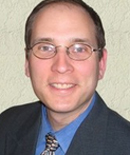 |
Kohs, who founded mywikibiz.com in 2006, the first and longest-running WP content creation and editing service, proposed a 75-minute presentation called "Confessions of a Paid Editor." He was going to cover difficulties paid or non-paid contributors have in dealing with the complicated and strict guidelines set up by WP editors and administrators.
WP is suspicious of anyone whose motives might be tainted by commercial advantage. Kohs, whose banning was covered by Wikipediocracy, was going to review instances of “marketers and PR people who botched their interaction with WP and paid the price.”
He was to show “where they went wrong so that paid or unpaid writers can avoid the same mistakes.” He promised to overturn “some of the persistent myths about WP.”
Lawyer Says Nyet to Kohs
Kohs received an e-mail from a lawyer the day before the conference saying he would not be allowed to give a presentation or even attend and “The decision is final and not subject to reconsideration or appeal.” Attendees had to pass through security.
The barring of someone from a conference advertised as being “open to all participants” including the “skeptical” with no chance of an appeal or hearing brings to mind PRSA and ALEC.
Both have used the same cudgels on media people.
All reporters have been banned from the Assembly of PRSA for the past three years. O’Dwyer reporters have been banned from all sessions of the national conference and the exhibit hall for four years. There is no avenue of appeal of such decisions. The Society had judicial panels that heard such disputes until 1999 when the Code of Ethics was rescinded and a new Code was created.
PRSA recently cancelled website privileges of two members without any hearing or investigation beyond its own monitoring of members accessing the website. It considers all such searches to be the “property” of the Society. Alleged abusers can be barred “on suspicion” of miss-use.
In one case, the member looked at the audit of the Society on the web but did not download it or forward it to this reporter. The member’s access privileges were revoked. In the other case, a member suspected of forwarding material from the website had his access temporarily revoked.
Reporters for PR Watch have similarly been banned from conferences of ALEC.
UNESCO Fights Press Persecution
UNESCO has a major initiative aimed at combating what it sees as a worldwide offensive against the right of reporters to cover governments, institutions and businesses.
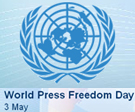 Not only are many institutions sitting on their hands in the wake of such offenses, but so is a good deal of the press, say UNESCO officials.
Not only are many institutions sitting on their hands in the wake of such offenses, but so is a good deal of the press, say UNESCO officials.
“Press Freedom Day” honoree Ahmet Sik told 300 at a UNESCO event in Paris May 3 that “every oppressive regime creates its own media…journalists imprison themselves through censorship. They live behind invisible bars.”
The only paid editing proposal that made it to the WP conference was one titled “Paid Editing Moderated Discussion” submitted by Dorothy Howard, one of the program officers of the meeting.
Kohs asked to be added to Howard’s discussion roster. On the afternoon before the start of the conference, he received an e-mail from a lawyer saying he was barred from attending the conference even as an observer.
Content Improvement Needed
Kohs would like WP to focus on “more reliable knowledge” and less on “more editors, more readers and more donors.”
A major flaw of WP, he says, is the thousands of anonymous editors who have power over copy but who are not experts in the subjects they are supervising. WP editing rules are elaborate and often contradictory, he says.
“The WP Foundation really needs only 15-20 staffers and $5 million to keep the website operating," he said. "A bloated organization has been built which now has more money than they know what to wisely spend it on. Staff totals more than 180.”
Revenues in the year ended June 30, 2013 grew 26.4% to $48,635,408 and net assets grew 29.4% to $45,189,124. Investments as of June 30, 2013 were $17,579,068 and cash was $3,600,400. IRS Form 990, which has the 2013 pay packages of the top eight staffers, is not yet available.
Sue Gardner, recently replaced as executive director by Lila Tretikov, had a package worth $219,980 in 2012. The eight top staffers were paid a total of $1,405,225 according to the 990 filing which was made on April 9, 2013, just before the last deadline.
Kohs had submitted the following abstract to the conference.
Commercial paid editing of Wikipedia has been tumultuously debated since at least 2006 when MyWikiBiz, the first (and longest-running) content creation and editing service devoted to Wikipedia, was launched.
In these debates, often the paid editor's point of view is either assumed, not invited, or even muzzled (by reversion, blocking, and banning). Indeed, the Wikimedia Foundation kicked off 2014 by terminating the employment of a star colleague when it was discovered that she was engaging in paid editing contracts in addition to her work for the Wikimedia Foundation.
In this presentation, you'll hear about the experiences and mindset of one of the most "notorious" paid editors in Wikipedia history, myself. Other paid editors and I have concluded that content decisions at Wikipedia are not at all about the quality of the contribution, but rather, the provenance of the contribution.
If the editor is embedded in the community, the content generally stays, even if it is poorly written or inadequately sourced; but if the editor is new and unfamiliar, the content may be deprecated or removed with prejudice, even if it's immaculately constructed and well-referenced. Wikipedia's guideline about paying someone to make edits on your behalf states:
...If you expect to derive monetary or other benefits or considerations from editing Wikipedia, then you are very strongly encouraged to avoid editing Wikipedia in areas where there is a conflict of interest that may make your edits non-neutral (biased).
That sounds clear and fair enough, but what it doesn't tell you is that biased and subjective administrators are frequently the ones who will make the determination whether edits are "non-neutral.”
This presentation will review several case studies of marketers and PR professionals who, frankly, botched their interaction with Wikipedia and paid the price. We'll retrace their steps, so that you can see where they went wrong, so that would-be writers (paid or unpaid) can avoid the same mistakes. You may be surprised by some of the persistent myths about Wikipedia that I may overturn.


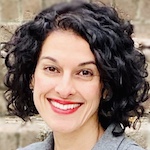 Sherrie Mazur will join the Arthur M. Blank Family Foundation as managing director, of communications on Feb. 14.
Sherrie Mazur will join the Arthur M. Blank Family Foundation as managing director, of communications on Feb. 14. 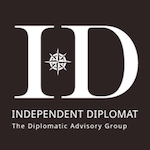 Independent Diplomat, the nonprofit that promotes democracy by organizing opposition movements and activists, has trained its sights on Venezuela.
Independent Diplomat, the nonprofit that promotes democracy by organizing opposition movements and activists, has trained its sights on Venezuela.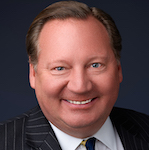 Robert Tappan has joined the International BioMetrics + Identity Assoc., the trade group for the identity technology industry.
Robert Tappan has joined the International BioMetrics + Identity Assoc., the trade group for the identity technology industry.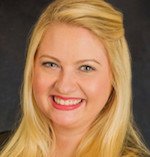 Tiffany Haverly, who was at Finsbury Glover Hering, has joined the Internet Association as director of communications.
Tiffany Haverly, who was at Finsbury Glover Hering, has joined the Internet Association as director of communications.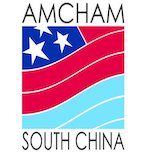 BGR Government Affairs represents the American Chamber of Commerce in South China as economic and political tensions between the two countries escalate.
BGR Government Affairs represents the American Chamber of Commerce in South China as economic and political tensions between the two countries escalate.


 Have a comment? Send it to
Have a comment? Send it to 
No comments have been submitted for this story yet.